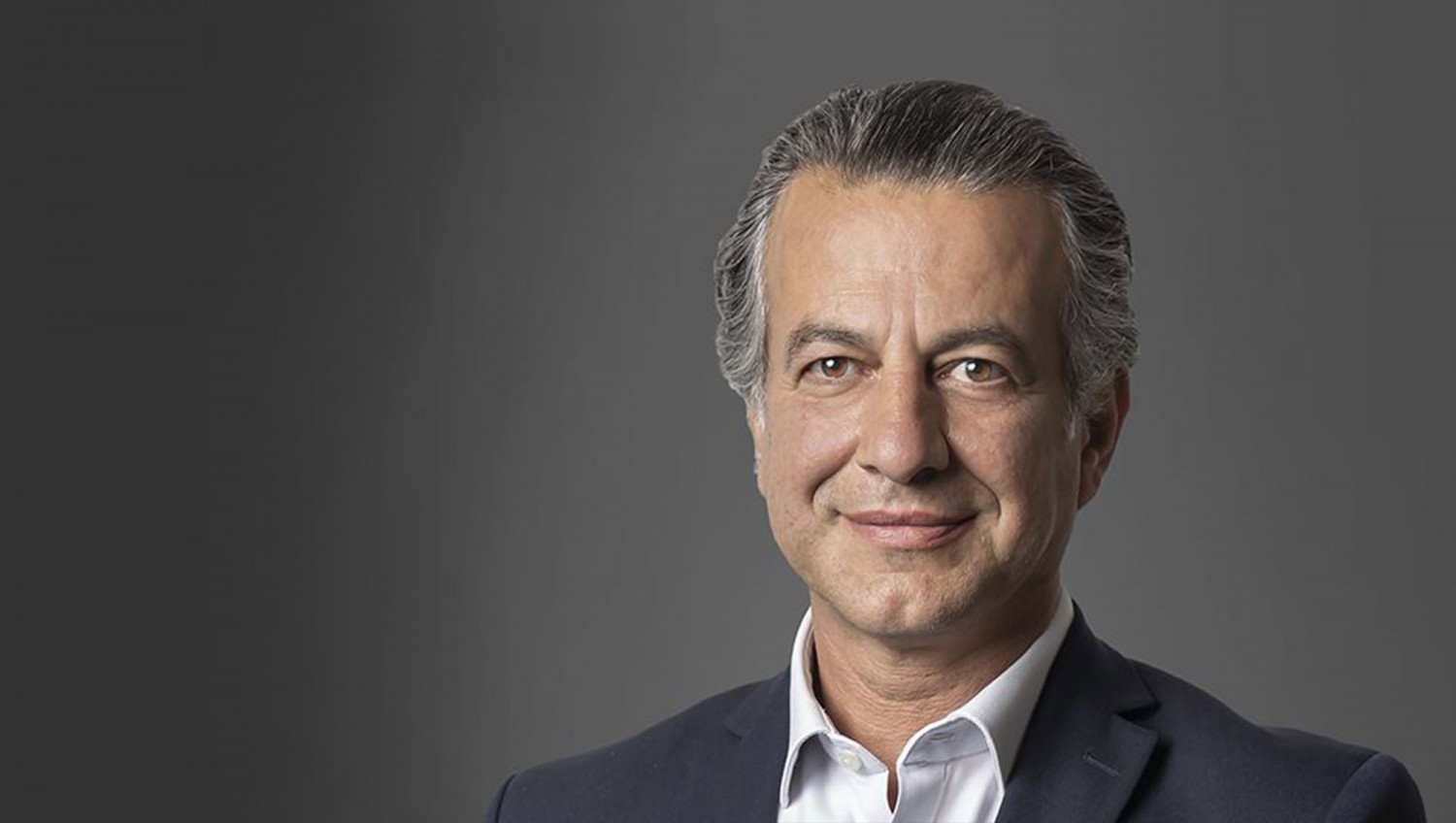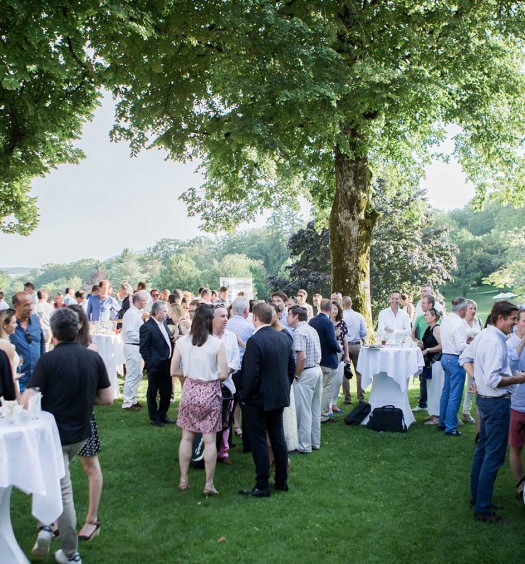Camille Sednaoui has been appointed CEO of TradeXbank in 2024. He joined from Crédit Agricole Indosuez (Switzerland) SA where he was heading the International Trade & Transaction banking unit and a member to the Executive Committee.
From 2018 to 2020 he was Head of Mining, Metal & Soft Commodities at Crédit Agricole Indosuez (Switzerland) SA. Between 1997 and 2018 he held various positions in the Commodities and Trade Finance business at Crédit Agricole and previously at Crédit Lyonnais.
1-Moment of Revelation: Can you tell us about a ‘defining’ moment in your business career, a decision or innovation that changed everything for you? What’s the story behind this major pivot?
My appointment by the management of Crédit Lyonnais in Paris for a business audit mission to assess the most strategic location for developing trading activities was a pivotal moment in my career. My analysis covered the bank’s operations on a global scale, including major financial centers such as the United States, London, Paris, Geneva, Hong Kong, and Singapore. My conclusion was clear: Geneva was clearly the wisest choice due to an ecosystem perfectly suited to trading, specialized expertise, and a network of related companies and services, including among others, maritime transport and inspection companies. This decision ushered in a new era with the development of a platform for Crédit Lyonnais in Geneva in 2003. Then the activities were merged with those of Credit Agricole, a founding act in my professional journey for the trading industry.
2-Green Challenge: The sustainability challenge is everywhere. Tell us about the boldest sustainability initiative you’ve launched or been part of. What were the unexpected obstacles and surprising successes?
In the banking sector, sustainability should not be limited to a few symbolic actions. Beyond internal measures such as reducing paper or plastic bottles, we must pay attention to our electricity consumption as our activities, especially our IT infrastructure, are energy-intensive. Long remote video meetings are often unsustainable practices that we must collectively work on. It is imperative to go further and initiate a deep and strategic transformation. The decarbonization agenda is currently being guided by economic interests and not very open to criticism that may be considered incorrectly as “politically incorrect”. Commitments have been made from 2030 to 2050. While they are important and useful for the planet, some actors have nevertheless chosen to reject certain practices from their business models. It would certainly be wiser to support the transition and support actors working for change by actively reducing their carbon footprint.
Some observations:
CSR reports are becoming thicker than financial statements. Does this demonstrate a growing concern for sustainable development and corporate social responsibility or does it become a manipulable marketing tool? Small and medium-sized enterprises do not have the same resources as multinational corporations, but these communication constraints become a new barrier to entry and financing while they have a real social utility that receives no spotlight.
Criticism is therefore easy, but we all want to acquire the latest technological tools without worrying about the means of production used.
Developing countries see their energy needs exploding. Closer to us, the challenge of large-scale electrification is posed. Infrastructures are needed to produce greener electricity! Commodities such as cobalt, lithium, rare earths, or copper, the production of which remains concentrated in a few developing countries… Are we ready to become totally dependent on them?
Similarly, we are happy to receive our online purchases at home with just one click, but do we realize the ecological and logistical impact of this purchase. As for maritime transport, some banks still finance ships but no longer wish to finance what enables them to move forward… Yet, to date, there is no substitute for fossil fuels for large-scale volumes.
And yet, the term “sustainable” is becoming omnipresent in all financial discourse and the development of all financial products. It seems difficult to deny the right to growth of developing countries. Rich and developed countries have a moral obligation to change their practices to support the innovation and deployment of ‘sustainable’ energies at affordable costs. This will provide developing countries with new solutions for them to take over. The problem is global, planetary, and concerns us all. We must therefore have the courage of nuance and the courage of complexity.
3-Technological Futurism: If you had an unlimited budget to develop a technology for the trading sector, what would it be and how would it revolutionize the industry?
To radically transform the trading sector with an unlimited budget, I would prioritize the development of an integrated digital platform based on blockchain technology. This technology has not yet reached its full potential in the industry, mainly due to resistance to change and delays in legislation allowing for the complete dematerialization of key documents. I find it regrettable that, despite the urgency, countries are not more proactive, through chambers of commerce, in promoting electronic bills of lading, especially maritime ones, which require legal recognition.
Throughout Asia, fraud related to bills of lading has led to rapid initiatives, notably in Singapore where the electronic bill of lading is now recognized. This opens the door to more extensive dematerialization, but it also requires greater clarity and cooperation among all stakeholders in the supply chain. Greater transparency is needed, and it is a real challenge.
The lack of legal value of electronic documents is a major obstacle to the advancement of blockchain in trading. With an unlimited budget, the goal is to overcome these obstacles so that the technology can finally deliver on its promise of efficiency and transparency in the industry.
4-Leadership Anecdotes: What is the toughest decision you’ve had to make as a leader? How has this experience transformed your approach to management and corporate culture?
Restructuring or arbitrating relationships that were once but are no longer at the core of the target market, according to commercial strategies, has been a challenging experience. However, I have always approached it with responsibility and respect, giving people or enterprises time to find alternative solutions.
5-Cultural Contrasts: Share with us an experience where understanding a cultural nuance made all the difference in a negotiation or business deal. How has this experience enriched your overall approach?
Understanding cultural subtleties is crucial in business negotiations. The art of adapting without offending requires intelligence and sensitivity. Each culture has its nuances, and in business, it is essential to be able to interact with counterparts in a pleasant, smooth, and understanding manner. In our field, trust is paramount, and over the years, I have established strong relationships with my clients that allow for open and sincere communication.
My childhood in Lebanon, then in Paris within a culturally diverse environment, taught me the importance of dialogue and accepting differences. This has proven to be very useful in my career. This ability to navigate among different cultures has enriched my professional practice and allowed me to establish stronger and more respectful agreements.
6-Bold Predictions: What is your boldest prediction for the future of business? Are there emerging trends or innovations that you think are currently underestimated by the industry?
International trade will persist. It is undeniable. The added value that a merchant brings, through its role as an intermediary and its fine expertise in product management, logistics, hedging strategies, and market trends forecasting, is more crucial than ever. Today, we see that large trading companies are venturing beyond their traditional activities to engage in financial structuring and volume creation, thus encroaching on part of the banks’ scope. The particularity is that these companies do not operate under the same regulatory framework as traditional financial institutions. I believe that, without regulation, this market evolution will continue to accelerate, paving the way for new forms of financing in commodities trading with the progressive disintermediation of major banks.
7- Failures and Lessons: Talking about failure is often taboo in the professional world. Could you share with us a significant failure from your career and the valuable lessons you learned from it? How did this failure contribute to your future success?
My biggest failure is not having succeeded at the time in being an entrepreneur and creating my own group… Yet, I was not short of ideas. I even patented 2 inventions in the fields of marketing and advertising but these projects did not materialize for exogenous reasons. It therefore takes ‘a little extra’ to launch a business. This is why I am and remain admiring of entrepreneurs who find the means and conditions to carry out their ideas to fruition.
In the professional panorama of large groups where internal politics often play a key role, I recognize that I have not always excelled in this aspect. Sometimes, being more political could have been beneficial to me, but I have always prioritized the progress of my teams and the commercial aspect instead of playing the political card. My passion for steering and valuing talents, including those superior to mine, has sometimes taken me away from personal promotion strategies.
I learned that fostering a corporate culture where skills and collective intelligence are highlighted is more in line with my values than playing the game of political intrigue. However, this approach also has its limits in a corporate environment where power plays are inevitable.
This experience reinforced my commitment to authentic and respectful leadership, rejecting the culture of “petty bosses” that only lasts for a while. This lesson has consolidated my management philosophy and helped me succeed by valuing entrepreneurship and innovation, rather than authority alone. Ultimately, these principles have helped me build strong and sustainable teams and successfully complete meaningful projects.
8-Influences and Inspirations: Who are the personalities or thinkers, within or outside the business industry, who have influenced your professional vision? Is there a book or work that has been particularly meaningful to you?
Throughout my career, I have had the honor of encountering exceptional individuals, whose intelligence and talent were matched only by their humility. Their ability to communicate and make themselves accessible had a profound impact on me and shaped my vision of leadership. As for my literary influences, it is often by chance that I come across readings that turn out to be enriching discoveries. Rather than specifically seeking out a book to inspire me, I prefer to be surprised by the teachings I can draw from chance readings. An approach that often proves to be an unexpected source of inspiration.
9-Societal Impact: Beyond profit and growth, what societal contribution do you aspire to make through your work in trading? How do you envision your sector playing a positive role in global issues such as sustainability, social equity, or education?
My vision of societal impact through my work in commodities trading is threefold. First, it is about fostering a sense of pride among my collaborators and the companies I lead, thus creating a legacy of responsible growth and expansion. Beyond that, my contribution is measured by the development of trading companies, which has generated employment opportunities and propelled careers. It is by obtaining these opportunities and cultivating a fulfilling professional environment that I can actively contribute to society.
But my vision goes even further, integrating the principles of sustainability, social equity, and education. By promoting sustainable practices, we are not only meeting commercial or regulatory requirements, we are also participating in the protection of our environment for future generations. Social equity is ensured by creating an inclusive work environment and offering equal opportunities to all. And finally, by investing in the education and development of our employees, we are not only fueling the growth of our sector, but also raising the level of skill and knowledge, which benefits society as a whole. It is by acting in this way that I wish to leave a positive and lasting impact on the world.
10-Perspective on Ampersand World SA: How do you evaluate the role of Ampersand World SA in the trading ecosystem?
I believe I can say without hesitation that Ampersand World SA plays a distinctive role in the commodities trading ecosystem, mainly in Geneva. Your team has admirably positioned itself at the heart of this sector.
Your dynamism and mastery of the various commodities trading topics translate into a rich network and fine market intelligence, making you a key player in intermediation between professionals.
As a partner in major events, you amplify your footprint in this industry. Your positive energy is contagious and undoubtedly contributes to the success and dynamic atmosphere that characterizes you.
















Social Community